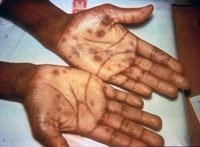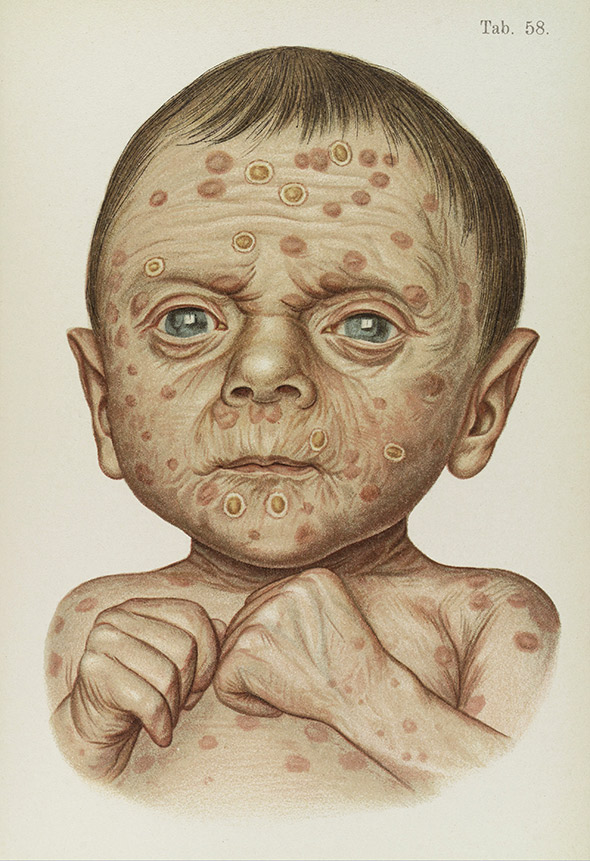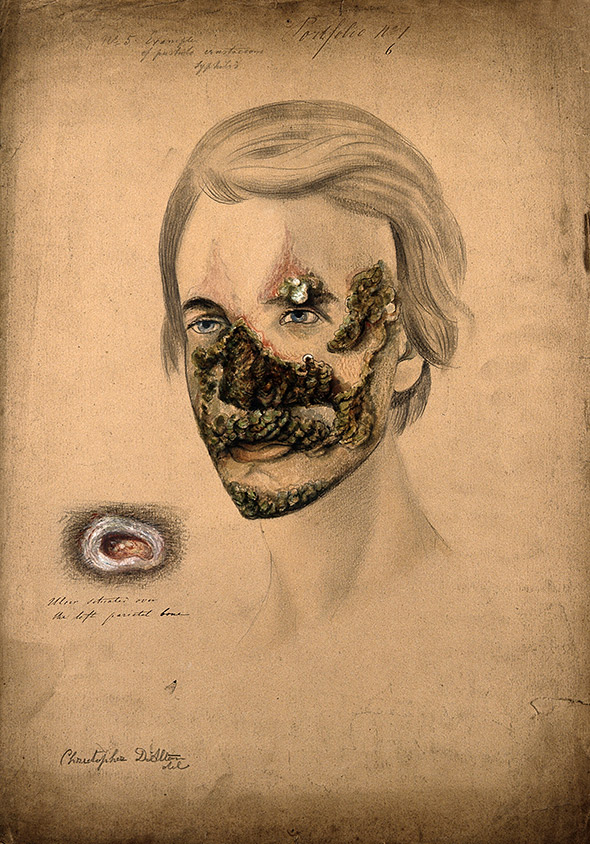An Unspeakable Disease
"The message to folks in the community is if you are sexually active with more than one partner, consider getting tested on a routine basis."
"I knew there was an increase before public health reported it."
"[Up until the 1990s] nobody around here was seeing syphilis. Then we had our first spike (around 2006) and it really took everyone off guard."
"If in doubt [clinicians] do the test."
Dr. Paul MacPherson, infectious disease specialist, The Ottawa Hospital

Syphilis is transmitted through oral, vaginal or anal sex and through skin-to-skin contact with syphilis sores. Infamously, the disease was commonly spread during times of war, when military men had indiscriminate sex with women, whether by force or permission. In the 14th Century the horrible disease that caused cankers, genital sores, abscesses and ulcers led eventually to madness as the disease gradually attacked the brain, and death followed.
Mercury was used as a medicament to help people, and those people often died of mercury poisoning before succumbing to a syphilitic death.
"If I were asked which is the most destructive of all diseases I should unhesitatingly reply, it is that which for some years has been raging with impunity … What contagion does thus invade the whole body, so much resist medical art, becomes inoculated so readily, and so cruelly tortures the patient?" Desiderius Erasmus, Dutch Scholar, Cleric, Humanist, Philosopher, 1520
Health officials in Ottawa now warn that over the past year they’ve seen a 76% increase in the number of syphilis cases, all of which have presented in male patients. Of those cases, over 90% have occurred among men who are sexually active with other men. Undiagnosed and untreated, the long-term effects of syphilis can be catastrophic, as the heart, liver, eyes and brain are eventually attacked.
If the disease is detected through a blood test and treatment given early enough, penicillin can stop it in its tracks.
Patrick O'Byrne with the Ottawa Public Health agency, a University of Ottawa nursing professor whose specialty is research into sexually transmitted diseases, explained that people most often have no idea that they have contracted syphilis. This blissful ignorance in the short term means they are unlikely to seek treatment. Their undiagnosed condition is highly infectious, and their ongoing sexual activity makes them a threat to the rest of the community with whom they interact.
 |
| Patrick O'Byrne, a public health nurse and associate professor at University of Ottawa, gets a blood test ready at the Ottawa Public Health Sexual Clinic, where they've seen a spike in syphilis. Photo: Ottawa Citizen |
Common symptoms are rashes which can appear around the genital area, the abdomen, and on the palms of hands or soles of feet, along with painless sores. They seem innocuous, but are anything but that. Left untreated their surface appearance may resolve, but medical authorities warn that the infection has simply gone underground. It's still there, still active, and if treated with antibiotics can be eradicated.
 Secondary stage syphilis sores (lesions) on the palms of the hands. Referred to as "palmar lesions." -- Centers for Disease Control and Prevention, U.S.
Secondary stage syphilis sores (lesions) on the palms of the hands. Referred to as "palmar lesions." -- Centers for Disease Control and Prevention, U.S. Dr. MacPherson is concerned that doctors be alerted so that when they encounter a patient with an unexplained rash, if that patient is sexually active beyond one partner, a syphilis test should be recommended and treatment initiated if positive. Ottawa Public Health advises that the people who should be screened are those with a sexual partner diagnosed with syphilis, those who exchange sex with multiple partners, in particular men who have sex with men, are sexually active and have symptoms that are recognized as consistent with syphilis.
 |
Image via Wellcome Library/London
|
In comparison with HIV, with its one percent risk of infection through a sex exchange with someone infected with HIV, transmission of syphilis stands at 60 percent under similar circumstances. And according to national surveys, condom use though not on the decrease in Canada, is unreliable in stopping syphilis infection. Neurosyphilis can occur decades after infection.
 | |
| |
Labels: Disease, Health, Human Relations

0 Comments:
Post a Comment
<< Home